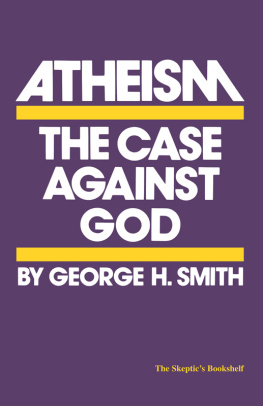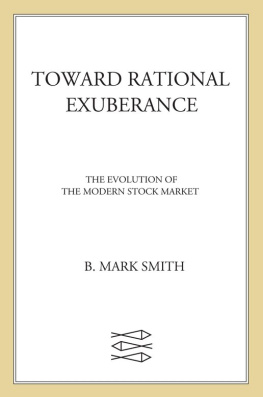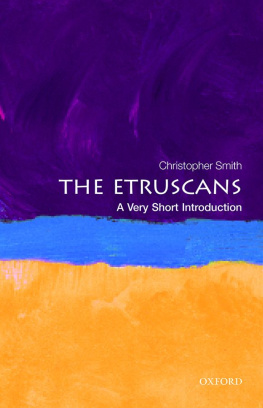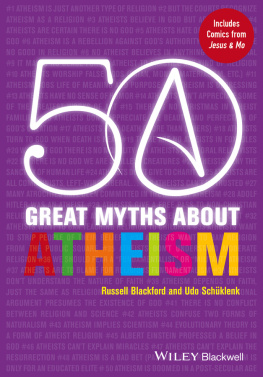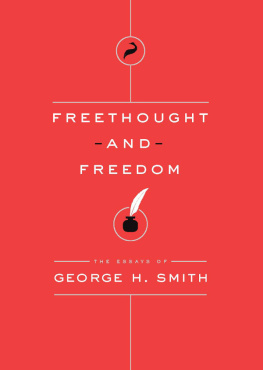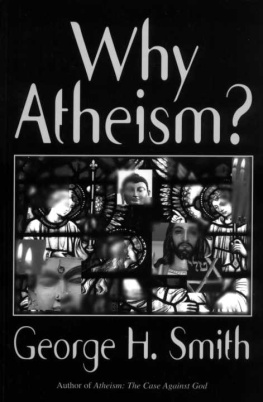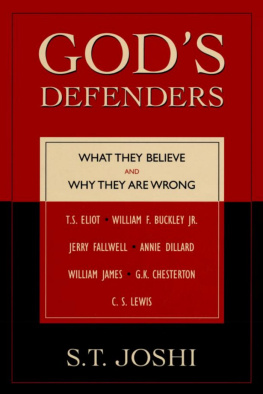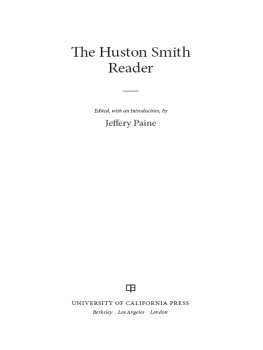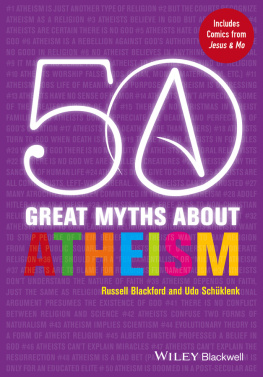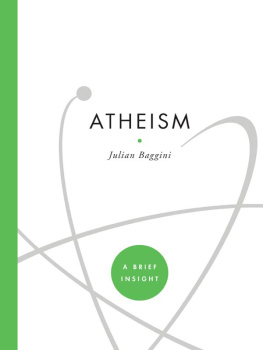Published in cooperation with
The American Rationalist
Published 1989 by Prometheus Books
Atheism: The Case against God. Copyright 1979 by George H. Smith. All rights reserved. No part of this publication may be reproduced, stored in a retrieval system, or transmitted in any form or by any means, electronic, mechanical, photocopying, recording, or otherwise, without prior written permission of the publisher, except in the case of brief quotations embodied in critical articles and reviews. Inquiries should be addressed to Prometheus Books, 59 John Glenn Drive, Amherst, New York 142282197, 7166910133. FAX: 7166910137. WWW.PROMETHEUSBOOKS.COM
The Library of Congress has cataloged the printed edition as follows: 792726
ISBN 978-0-87975-124-1 (pbk.)
ISBN 978-1-61592-995-5 (ebook)
Printed in the United States of America on acid-free paper
To Diane,
for the tender moments

THE SKEPTICS BOOKSHELF
ATHEISM: THE CASE AGAINST GOD
George H. Smith
ANTHOLOGY OF ATHEISM AND RATIONALISM
edited by Gordon Stein
THE BEST OF ROBERT INGERSOLL
edited by Roger E. Greeley
CLASSICS OF FREE THOUGHT (REVISED EDITION)
edited by Paul Blanshard
CRITIQUES OF GOD
edited by Peter Angeles
WHAT ABOUT GODS? (for children)

Does a god exist? This question has undoubtedly been asked, in one form or another, since man has had the ability to communicate. Men have pondered the question, discussed it, argued it, and killed over it. It appears to be a simple question calling for a simple answer, but its simplicity is deceptive. Thousands of volumes have been written on the subject of a god, and the vast majority have answered the question with a resounding Yes!
You are about to read a minority viewpoint.
This book is a presentation and defense of atheism. This is not a sympathetic examination or interpretation of religious doctrines; it is a straightforward critique, philosophically and psychologically, of the belief in a god, especially as manifested in Christianity.
The subtitleThe Case Against Godhas a twofold meaning: first, it refers to the philosophical case against the concept of god; and, secondly, it refers to the psychological case against the belief in a god. As a philosopher, I am continually amazed by the credence given to religious claims in the intellectual community; and, as a human being, I am appalled by the psychological damage caused by religious teachingsdamage that often takes years to counteract.
Atheism, even in todays liberal atmosphere, is still somewhat unacceptable. Simply being an atheist may be acceptable if, that is, one keeps it to oneself. What is frequently considered inappropriate is to advertise this fact, or openly to attack religious doctrines. Thus, some excellent critiques of theistic belief have been written by philosophers who, for reasons known best to themselves, refuse to acknowledge that what they are advocating is, in fact, atheism. And we also have the unfortunate spectacle of the philosopher who, after demolishing the idea of god philosophically, goes on to assure his audience, with a gesture of glib modesty, that he has merely presented his own opinion, and that he is not so presumptuous as to suggest that his listeners should abandon their belief in god. Finally, there is the philosopher or psychologist who, while openly admitting the irrationality of theistic belief, actually recommends it as a kind of therapeutic device designed to give emotional aid and comfort to mankindthus lending support to the myth that the average man is emotionally incapable of facing facts.
It is my firm conviction that man has nothing to gain, emotionally or otherwise, by adhering to a falsehood, regardless of how comfortable or sacred that falsehood may appear. Anyone who claims, on the one hand, that he is concerned with human welfare, and who demands, on the other hand, that man must suspend or renounce the use of his reason, is contradicting himself. There can be no knowledge of what is good for man apart from knowledge of reality and human natureand there is no manner in which this knowledge can be acquired except through reason. To advocate irrationality is to advocate that which is destructive to human life.
It is not my purpose to convert people to atheism; such efforts are usually futile. It is my purpose, however, to demonstrate that the belief in god is irrational to the point of absurdity; and that this irrationality, when manifested in specific religions such as Christianity, is extremely harmful. In other words, I have attempted to remove the veneer of intellectual and moral respectability that often enshrouds the notion of a god. If a person wishes to continue believing in a god, that is his prerogative, but he can no longer excuse his belief in the name of reason and moral necessity.
Although this book is intended primarily for laymen, it is impossible to avoid some degree of technicality due to the complexity of many religious doctrines. A writer cannot make an issue simpler than it really is; all he can doand what I have attempted to dois to present the relevant issues as succinctly and clearly as possible, discussing them in terms of their fundamentals, while remaining fair to the various sides under consideration. It is also impossible, within the scope of one book, to consider every argument ever presented in favor of theistic belief, or to answer every objection that might be raised against atheism, so I have necessarily restricted this discussion to those issues which I consider most important.
This book is divided into four major parts. In , I discuss the harmful effects of religion in general, and Christianity in particular, upon morality and the attainment of mans happiness and well-being on earth.
My approach to atheism is eclectic in the sense that I draw from many different sources in defense of various positions. In no instance, however, should it be assumed that my use of a source implies an agreement with the atheistic position by that source. Similarly, my use of an author in support of a particular position implies my agreement to that extent only, and in no case should further agreement be assumed.
Also, it is necessary to mention that I employ the term god in two different ways. I use it with a lower case g (god) to refer to the generic idea of a god, i.e., the general notion of a supernatural being, apart from any specific characteristics. I use the term God (with an upper case G) to refer specifically to the God of Christianity, along with its various attributes, such as omnipotence, omniscience and so forth. This unusual method provides me with a simple means of indicating, in any given context, whether I am referring to the idea of god in general or to the idea of the Christian God in particular.
Finally, I wish to thank the many people who aided in the preparation of this book, who are unfortunately too numerous to be listed individually. I wish, however, to express my appreciation to two people who were especially instrumental in the writing of this book: Roy Childs, without whom the first line would never have been written; and Sylvia Cross, my editor, without whom the last line would never have been written.
George H. Smith
April 1973
Los Angeles


